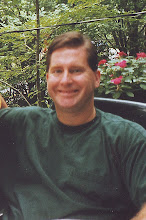The most simple and direct illustration of the difference between history and the past is your own life. Assuming that the universe was not created five minutes ago by a playful Deity, you do have a past. Much of it is unknown. There is some number which is the total number of your heart beats from the moment as an embryo when your heart started beating, to the time you reach the end of this sentence. That is an unalterable, objective fact about your past.
We are story-telling beings. That is a fundamental fact about our 'natural history'. When we look at the course of our own lives we feel compelled to re-construct the actions we have done and the events that have happened to us in a way that makes some sort of sense. Why is it necessary to do this? Why not just lay out all the 'facts' that we are able to recall to memory, or reconstruct from external evidence?
Explanations in the form, 'X caused Y to happen', whenever they are available, will be part of this collection of facts. But causal explanations will not always be available, or, when they are available, may be highly conjectural. What is the real, objective explanation of any human action? How far back do you go? From this perspective, it seems an impossible task.
Yet we do explain our past actions. We succeed in telling a coherent story about our own lives. Of course, there will always be opportunities for self-deception. But remember that these personal 'histories' have to stand the test of the questions and criticisms of others. If your attempt at autobiography falls apart under the most cursory examination, then that is as good a sign as any that the historical claims you have made regarding your own life are false. But what exactly does that mean?
A record of your actions and the events that happened to you in the past can only be true or false. Either what the diary records, or what your memory tells you, happened or it didn't. Such records constitute the evidence for a history. By contrast, a history can only be more or less coherent than another history based on the same historical evidence. Some philosophers would draw the conclusion that a history cannot strictly be 'true' or 'false'. I would rather say that when we are concerned with history, rather than with the past, questions of truth and falsity remain open-ended, not just with respect to the possibility of uncovering new evidence, but also with respect to the possibility of seeing past events in a new light.
What I have said about personal history, about constructing an autobiography, is intended to generalize to all history. Just as I can attempt to tell my history, so I can attempt to tell yours. Or we can attempt to tell ours — or theirs. It is not necessary that the span of one's own life should be placed within the history that one is telling. Yet it seems to me that a good historian always does succeed, in imagination, in putting himself in the historical period that he is recounting, and by so doing, enables the reader to do the same. A historical account is believable, makes sense, to the extent that we can imagine what it was like to have been there.
Saturday, October 9, 2010
Subscribe to:
Post Comments (Atom)





No comments:
Post a Comment